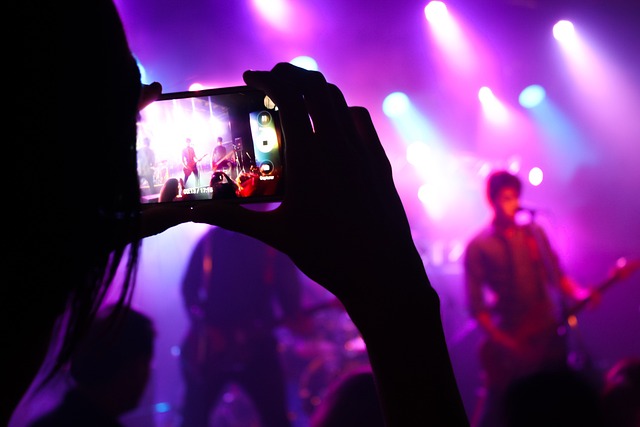Last Tuesday marked a defining moment in my life. I never thought going to a rock concert would change the way I perceive live music. The excitement began as soon as I entered the building. How strange it was to see smoke filling the interior space under the white light, leaving no shadows. Everyone was calm and well-dressed in black—the language of rock. I, on the other hand, was wearing white, my favorite thick dark brown cotton pants, and my trusty red leather boots. Not bad, I thought, since my rock days were decades ago. That was how I dressed back then, and tonight was no different.
The queue to the waiting hall wasn’t long. I was the only one there in line being checked by a handheld scanner, confirming I was there for the show. This was followed by another checkpoint to ensure no unusual items crossed into the concert area.
Besides some lingering people striking up conversations with friends and strangers scattered around, a line quickly formed near where I stood. It led to a table draped in black cloth, selling Mono merchandise. I thought to myself, “Surely I can find something to remember this special moment by.” I bought a T-shirt.
Holding my $35 purchase with gratitude, I walked into the concert hall and searched for my seat. The atmosphere was busy; many like myself were entering for the first time, unsure of what to expect. But we all found our seats eventually. I now understood why people love music. Imagine a place where you can speak, listen, learn, explore, exist, and love. Above all, there is no race, religion, or nationality—just people. Everyone entered the hall the same way. There was no rich or poor, high or low; everyone present was free and equal. Among these free spirits, it became clear that we had come for the music, one of the few universal truths that still hold today.
I had never thought that stage lighting could be used to complement the artists and dance to the music. Seeing the lighting alone made the journey worthwhile. I let myself be moved, and the music transported me to the depths of my emotions. I thought, “I have come to the right place.”
What Mono played was not music. It was a sound that caressed you at first, slowly building to a crescendo with a drum set seemingly designed for more than two arms. Yet, with just two arms, the drummer played beautifully. At the climax, all four band members came together to create a powerful, intense blend of harmony. Then there was silence. The hall erupted with applause; some shouted, some cheered, and some, like me, clapped in amazement.
It was not just music—it captivated me. That, in itself, meant something. So, was it music? I believe that when we are open to new ideas, we form conclusions based on our reactions. Mono exposed me to a new way of experiencing music, showing that music doesn’t have to be confined to traditional structures. Music must be explored and allowed to evolve. It can be nothing and everything at once. That is what Mono brings to the table. In that sense, Mono is divine.
